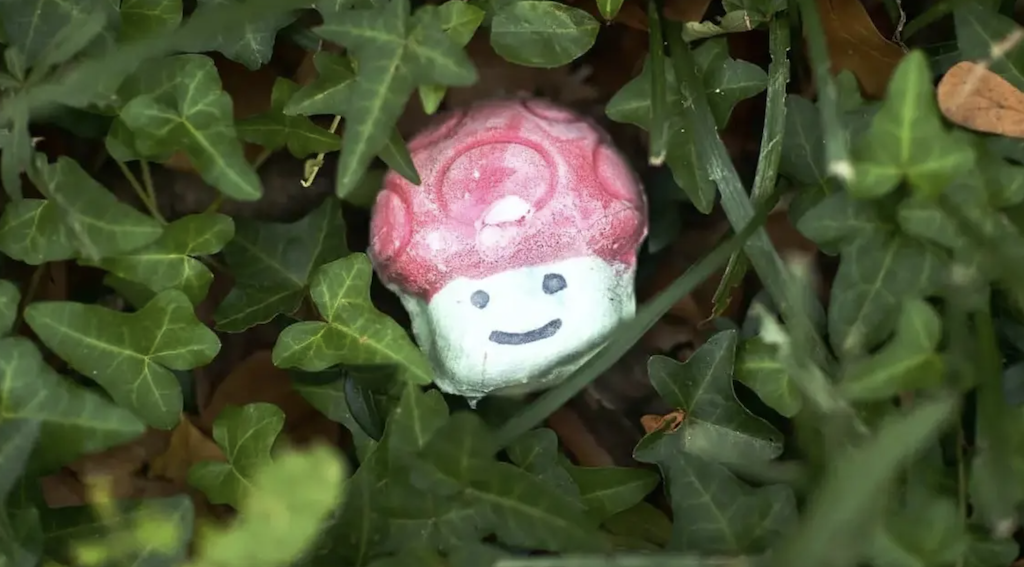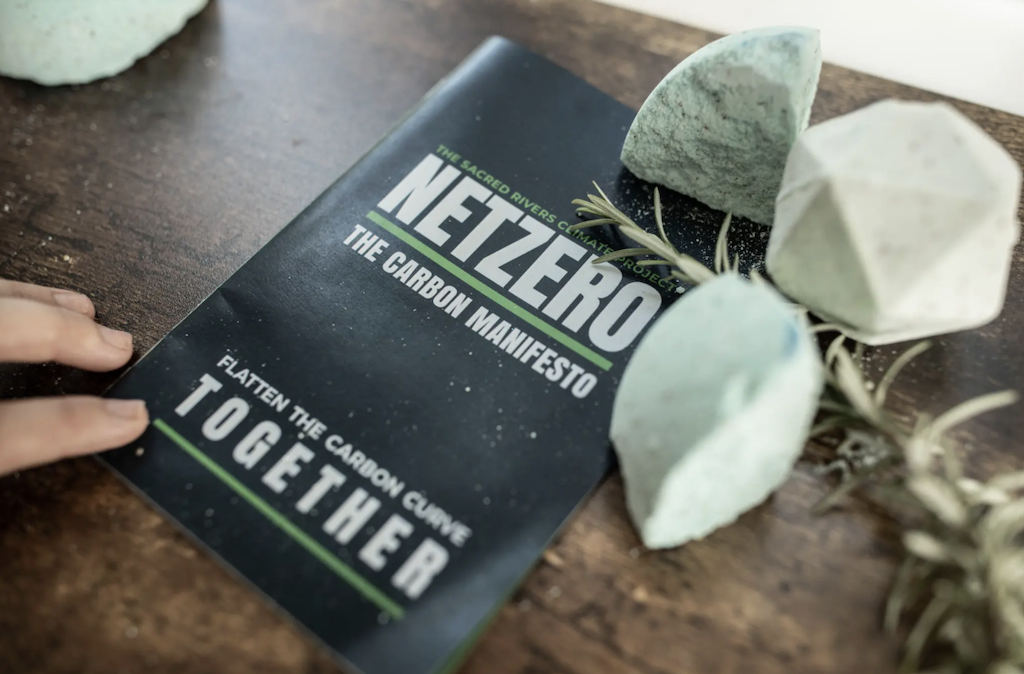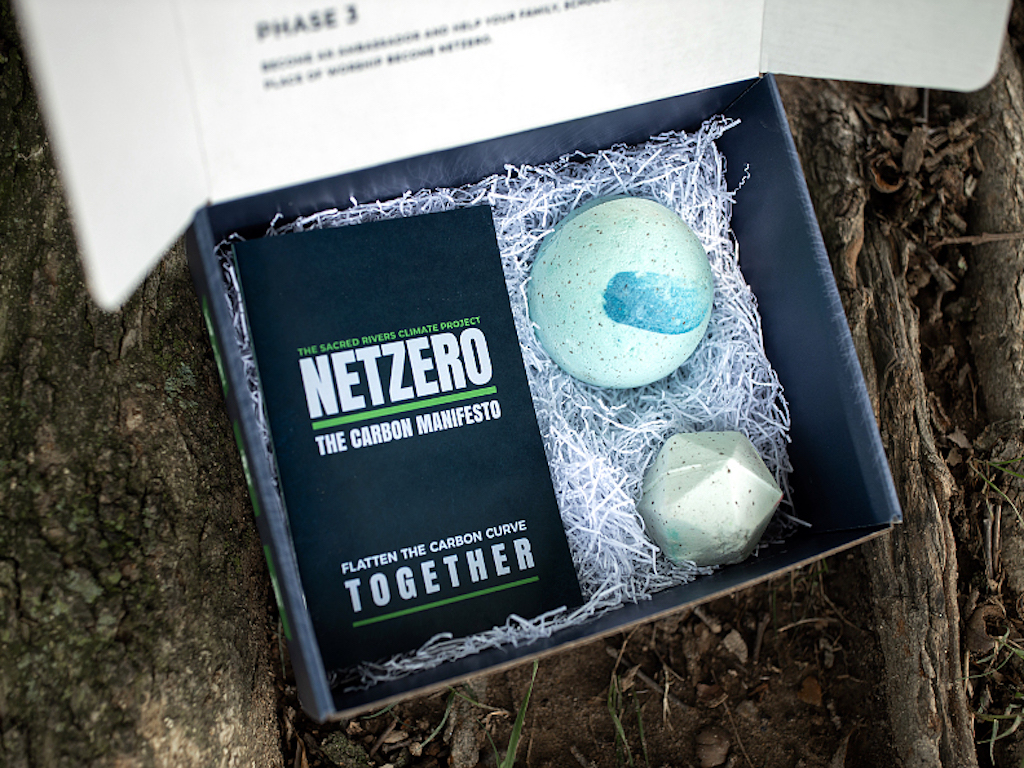4 Mins Read
No, not the kind that you eat, but a new type of “mushroom ball” that you can place in your garden to help absorb carbon dioxide from the atmosphere. Developed by NetZero, which will soon be launching through a Kickstarter campaign, these orbs leverage the carbon-sequestration ability of mycelium, derived from fungi, and can speed up the environment’s natural carbon capture rate by two-fold.
With the planet’s time running short before ecological and climate collapse, it’s now more important than ever to take as many steps as possible to reduce our carbon footprint. Besides cutting down meat and dairy consumption, avoiding air travel and supporting offsetting projects like reforestation, another way we can lower our emissions is to actually remove carbon dioxide from the air.
That’s what NetZero, created by the founder and CEO of carbon drawdown firm HiveMind Joseph Kelly wants us all to do with its upcoming mycelium orbs. HiveMind has for years been working with some of the world’s most polluting corporations such as fossil fuel companies to help them meet their carbon budget goals. Now, with NetZero, Kelly is empowering individuals to capture carbon from their backyard.

Although it might seem comical to place what looks like a bath bomb on the ground, one inoculation from the mycelium orb can last 10 years, and can absorb a ton of atmospheric carbon dioxide every single year. If every single American lawn had one, Kelly says that it would translate into upping the current 650 million tons of carbon captured by gardens annually to a whopping 1.3 gigatons – in effect, doubling the speed.
It works like this: when the balls are dissolved into a watering can or hose sprayer before being released into your yard, the mycelium starts to grow a capillary system around the roots of other plants. Over time, these roots extend and increase how your plants absorb water and nutrients, as well as helping to capture even more carbon dioxide within soil.
Each orb will sell for US$125, but right now, it’s available for pre-order for US$69, with all sales going towards funding the Sacred Rivers Climate Project, an initiative that leverages mycelium to create carbon banks across Nepal, Bali and Uganda and at the same time opening up employment opportunities for local women.

The NetZero founder came up with the idea when he learned that Canada’s boreal forest stores over a tenth of the world’s atmospheric carbon in large part thanks to its expansive mycelium system within the forest soil bed.
Aside from coming in ball-form, NetZero plans to also create pellet versions of mycelium, which can be easily dispensed to inoculate houseplants. The startup is additionally looking to develop an app that can track and visualise our personal carbon footprint and take the steps necessary to reduce it, such as through practicing sustainable habits and purchasing carbon credits, which will also go towards funding the Sacred Rivers project.
Speaking to Sustainable Brands in a recent interview, Kelly explains that the app will “show users, through their smartphone, the size of their footprint. 20 metric tons of carbon equals 30,000 square feet of atmospheric CO2. It will also give them a real-time image of the forests they plant and the ability to virtually walk through them.”
The best way he could describe it? “Think Pokémon Go, but for climate change.”
Editors Update: We have received various communications from a group of mycology experts and researchers, including mycologist Christian Schwarz, disputing the claims made by NetZero. You can view their analysis and conclusions here.
We reached out to Joseph Kelly for a response. According to NetZero founder Kelly and his legal team, Verra, the non-profit that certifies carbon emissions reduction, said that “This technology is a permissible landscape management activity under the Verified Carbon Standard (VCS) Program, which Verra manages.”
We reached out to Verra to find out more. and here is their statement as emailed to Green Queen:
Verra does not approve or reject technologies. Rather, we approve or reject “methodologies”, which are ways to measure emission reductions or removals by projects. We believe that an existing approved methodology (VM0017 – Adoption of Sustainable Agricultural Land Management, v1.0) could be used to measure emission reductions or removals by projects that use mycelium inoculation. This means that any project proponent may request the registration of a project that uses this methodology. A list of all projects that use, or have asked to use, the methodology in question is publicly available on our website (search under “VM0017” in the drop-down “Methodology” menu on the left).
All images courtesy of NetZero.




